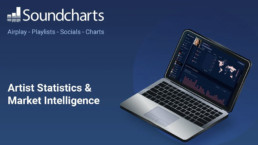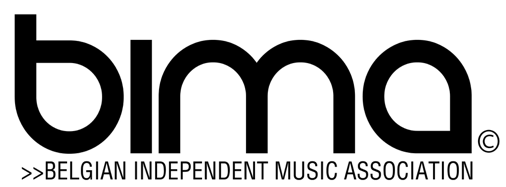Reactions to Artist Centric Model
ans09_bimasite

Last month, an agreement was announced between French streaming company Deezer and Universal Music Group (UMG) to introduce a new payment model. Once the champions of their version of a ‘User-Centric Model’, Deezer will offer from October a new system of revenue allocation they are calling an ‘Artist Centric Model’.
As active participants in the debate on streaming and keen early adopters of innovative business models, the independent music community has actively reacted to the announcement. The streaming manipulation provisions were welcomed as a step in the right direction, with mixed views on the proposals to reallocate revenues. Concerns were expressed about the way the deal was struck between two operators without wider consultation.
RAAP Case
ans09_bimasite

Almost three years to the day after the EU RAAP ruling was delivered, the European Commission published a second stakeholder consultation which will run until 12 November. The online survey is available in English, French and German.
As a reminder, our position on RAAP can be summarised as follows:
- We are not seeking mandatory reciprocity, but rather the express recognition of the principle of reciprocal treatment, with an accommodation for countries already applying another system.
- That the European Commission does not concede to national treatment in any trade negotiations with the USA or any other country that doesn’t have similar domestic rights.
Ongoing negotiations on the EU AI Act
ans09_bimasite

FR (just scroll down for NL) Dans le cadre des négociations en cours autour de la loi européenne sur l’IA. La BIMA défend les intérêts de ses membres, acteurs indépendants de la musique en Belgique.
Dans ce but, nous sommes attentifs au développement de l’IA du point de vue des PME détentrices de droits d’auteur sur la musique et suivons particulièrement les questions qui se posent à l’intersection de l’IA et du droit d’auteur, dont l’importance s’est considérablement accrue avec l’avènement récent de l’IA générative/fondamentale.
Nous demandons à la Belgique de soutenir, au minimum, la proposition du Parlement européen d’obliger les fournisseurs d’IA à enregistrer les données utilisées pour entrainer l’IA, y compris les œuvres protégées par le droit d’auteur, et de rendre ces données disponibles de manière suffisamment détaillée pour que les titulaires de droits puissent identifier et faire respecter leurs droits (article 28b(4.c)). Nous soutenons également pleinement la proposition du Parlement européen d’obliger les fournisseurs d’IA à informer les utilisateurs en temps utile, de manière claire et intelligible, lorsqu’ils interagissent avec des systèmes d’IA (article 52.1).
Nous pensons que les propositions du Parlement européen sur ces deux points constituent un bon point de départ et qu’elles pourraient être encore améliorées.
En ce qui concerne les modèles d’IA générative/fondamentale, qui ingèrent et s’entraînent sur de vastes quantités de données, il est essentiel que les développeurs et les distributeurs de ces systèmes respectent des obligations strictes en matière de transparence et de tenue de registres. Ce n’est qu’à cette condition que les titulaires de droits d’auteur seront en mesure de contrôler correctement l’utilisation de leurs œuvres et de s’engager dans des négociations équitables sur les licences.
Avec une large coalition d’organisations culturelles et créatives européennes (voir ici et ci-joint), nous avons salué la proposition du Parlement européen comme un pas dans la bonne direction, et nous appelons à renforcer ces dispositions en précisant que les développeurs et les distributeurs de systèmes d’IA générative :
• sont liés par le cadre européen existant en matière de droit d’auteur et doivent donc demander l’autorisation des titulaires de droits pour l’utilisation de leurs œuvres protégées par le droit d’auteur. À cet égard, la proposition du Parlement européen est pertinente et indique que la loi sur l’IA est sans préjudice de la législation européenne sur le droit d’auteur.
• doivent tenir des registres détaillés des œuvres de tiers ou d’autres objets protégés utilisés, ainsi que de la base sur laquelle ils ont été consultés, et mettre ces informations à la disposition des titulaires de droits.
NL In het kader van de huidige trialoogonderhandelingen over de Europese wet op Al. BIMA verdedigt al meer dan 15 jaar de belangen van haar leden, de belangrijkste onafhankelijke muziekproducenten, in de Belgische muziekindustrie.
ln dit kader volgen we de ontwikkeling van Al nauwlettend op vanuit het oogpunt van KMO’s die muziekauteursrechten bezitten. Vooral omwille van het groeiende raakvlak tussen Al en het auteursrecht ten gevolge van de opkomst van (vooral) generatieve Al.
We roepen België op om ten minste het voorstel van het Europees Parlement te steunen om Al-aanbieders te verplichten de gegevens die worden gebruikt om Al te trainen, met inbegrip van auteursrechtelijk beschermde werken, te registreren en deze gegevens voldoende gedetailleerd beschikbaar te stellen zodat rechthebbenden hun rechten kunnen vaststellen en afdwingen (artikel 28 ter, lid 4, onder c).
We staan ook volledig achter het voorstel van het Europees Parlement om Al-aanbieders te verplichten gebruikers tijdig, duidelijk en begrijpelijk te informeren over hun interactie met Al- systemen (artikel52, lid 1).
We zijn van mening dat de voorstellen van het Europees Parlement op deze twee punten een goed uitgangspunt vormen en verder kunnen worden verbeterd.
Met betrekking tot generatieve Al-modellen, die enorme hoeveelheden gegevens opnemen en trainen, is het essentieel dat ontwikkelaars en distributeurs van deze systemen voldoen aan strenge verplichtingen op het gebied van transparantie en het bijhouden van gegevens. Alleen dan kunnen auteursrechthebbenden het gebruik van hun werken goed controleren en eedijke licentieonderhandel ingen voeren.
Samen met een brede coalitie van Europese culturele en creatieve organisaties (zie hier en in de bijlage) hebben we het voorstel van het Europees Parlement venvelkomd als een stap in de goede richting, en we roepen op om deze bepalingen te versterken door te specificeren dat ontwikkelaars en distributeurs van generatieve Al-systemen :
• zijn gebonden door het bestaande Europese auteursrechtenkader en daarom toestemming moeten vragen aan de rechthebbenden voor het gebruik van hun auteursrechtelijk beschermde werken. ln dit opzicht is het voorstel van het Europese Parlement relevant omdat wordt gesteld dat het Europees auteursrecht het Al aspect te weinig doorlicht.
• moeten gedetailleerde registraties bijhouden van werken van derden of andere beschermde zaken die zijn gebruikt en de basis waarop ze zijn geraadpleegd, en deze informatie beschikbaar stellen aan de rechthebbenden.
Free Trial Account for Soundcharts
ans09_bimasite

Hi BIMA members,
As a member of IMPALA network, we wanted to let you know that friends of IMPALA Soundcharts, a European and global music analytics platform, would like to offer BIMA members a two-month free trial of their platform, followed by a global discount on their subscription.
Soundchart’s platform can allow you to:
– improve digital and radio reporting/alerting on your roster
– discover new talents in your country
(ACCES MEMBER ONLY)
if you would like to enter the free trial for BIMA / IMPALA members and/or benefit from the global discount. Existing accounts can also benefit from the discount.
All members who would like to join the free trial must complete the form by 1st October 2023.
More info contact Rémi remi@bima.be
Executive IMPALA board meeting
ans09_bimasite

Geert De Blaere & Michel Lambot represented BIMA members at the IMPALA board meeting in Vienna early this month. Here is some of topics discussed during the meeting :
- The secretariat to monitor the outcome of streaming tax debate in France while generally supporting tax credits across Europe.
- IMPALA to investigate a possible study on added value to the sector of tax credits.
- Streaming reform group and management committee to agree terms for an economic streaming study Chris Carey.
- Management committee to request clarity from Deezer, prepare a note for members on their deal with UMG referring updated streaming plan, and a statement.
- Emerging tech and copyright committee to produce a public position on AI to capitalise on commercial opportunities and support a strong copyright framework.
- Members to not count digital in their carbon accounting.
